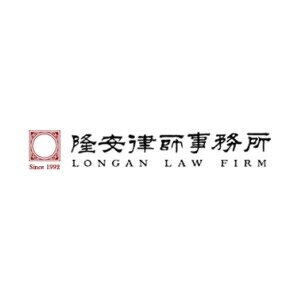Best Social Security Lawyers in China
Share your needs with us, get contacted by law firms.
Free. Takes 2 min.
Or refine your search by selecting a city:
List of the best lawyers in China
About Social Security Law in China
Social Security in China is a multifaceted system designed to provide various forms of public welfare and insurance, including pensions, healthcare, unemployment insurance, work-related injury insurance, and maternity benefits. It is governed by a complex set of laws and regulations aimed at supporting China's workforce and providing a safety net for the aged and needy populations. The system is mandatory for all employers and employees, with contributions required from both parties. The Chinese social security model is continually evolving to encompass a broader range of social insurance and public welfare goals.
Why You May Need a Lawyer
Navigating the intricacies of Social Security law in China can be a challenging endeavor, especially for foreigners or those unfamiliar with the legal landscape. Common situations where you may require legal assistance include:
- Resolving disputes over social security contributions between employers and employees.
- Assisting foreign employees in understanding their rights and obligations under China's social security laws.
- Ensuring compliance with mandatory insurance and pension contributions for businesses.
- Navigating disagreements with social security bureaus and understanding local enforcement practices.
- Appealing decisions related to social security benefits, such as denial of claims or incorrect calculation of benefits.
Local Laws Overview
China's social security regulations are set at both the national and local levels, with local governments having the authority to implement detailed provisions. Key components include:
- Pensions: Employees and employers must contribute to a public old-age pension system, which allows workers to receive benefits upon reaching a specified retirement age.
- Healthcare Insurance: Mandatory medical insurance contributions are required, offering coverage for a wide range of healthcare services.
- Unemployment Insurance: Provides benefits to workers who lose their jobs, provided they meet specific conditions set by local authorities.
- Work-Related Injury Insurance: Covers medical costs and compensation related to workplace injuries.
- Maternity Insurance: Offers support for women during pregnancy, childbirth, and post-natal care.
Frequently Asked Questions
What is the retirement age for social security benefits in China?
The statutory retirement age is 60 for men, 50 for most female workers, and 55 for female officials or female professional and technical personnel.
Can foreigners participate in China's social security system?
Yes, foreigners working in China are generally required to participate in the social insurance system, although there is some variation in local enforcement and exceptions based on social security agreements between China and other countries.
What happens if my employer fails to pay social security contributions?
If your employer fails to pay social security contributions, they may face legal penalties, and you may require legal assistance to claim unpaid contributions or benefits.
How are social security contributions calculated?
Contributions are typically a percentage of an employee's wage, with different rates for each type of insurance. The exact percentages can vary depending on local regulations.
Is participation in social security mandatory?
Yes, participation in the social insurance system is mandatory for both employees and employers in China.
What benefits are included in the social security system?
The system includes benefits related to pensions, healthcare, unemployment, work-related injuries, and maternity.
How can I check my social security contributions?
You can usually check your social security contributions through online platforms provided by local social security bureaus or seek help from your employer’s HR department.
How do I apply for social security benefits?
Applications for benefits typically require submitting documents to your local social security bureau. It is advisable to consult with a legal advisor to ensure correct and complete submission.
Can self-employed individuals participate in the system?
Yes, self-employed individuals can participate in some aspects of the social security system, though the specifics can vary widely across different regions.
What should I do if my social security benefits are incorrectly calculated?
If you believe there has been an error in calculating your benefits, you should contact your local social security bureau immediately. Legal assistance may be necessary to resolve the issue.
Additional Resources
For further assistance and information on Social Security in China, consider reaching out to the following resources:
- Local Social Security Bureaus: For region-specific inquiries and assistance.
- Ministry of Human Resources and Social Security of China: For national laws and regulations.
- Legal Aid Centers: Offer free or low-cost legal assistance in some jurisdictions.
- Professional legal firms specializing in labor and social security law.
Next Steps
If you need legal assistance with issues related to Social Security in China, consider the following steps:
- Identify and document the specific legal issue or concern you have.
- Contact a legal professional with experience in Chinese social security law.
- Gather all necessary documentation related to your social security concerns.
- Schedule a consultation to discuss your situation and explore your legal options.
- Adhere to the guidance provided by your legal advisor to resolve the issue effectively.
Lawzana helps you find the best lawyers and law firms in China through a curated and pre-screened list of qualified legal professionals. Our platform offers rankings and detailed profiles of attorneys and law firms, allowing you to compare based on practice areas, including Social Security, experience, and client feedback.
Each profile includes a description of the firm's areas of practice, client reviews, team members and partners, year of establishment, spoken languages, office locations, contact information, social media presence, and any published articles or resources. Most firms on our platform speak English and are experienced in both local and international legal matters.
Get a quote from top-rated law firms in China — quickly, securely, and without unnecessary hassle.
Disclaimer:
The information provided on this page is for general informational purposes only and does not constitute legal advice. While we strive to ensure the accuracy and relevance of the content, legal information may change over time, and interpretations of the law can vary. You should always consult with a qualified legal professional for advice specific to your situation.
We disclaim all liability for actions taken or not taken based on the content of this page. If you believe any information is incorrect or outdated, please contact us, and we will review and update it where appropriate.
Browse social security law firms by city in China
Refine your search by selecting a city.















